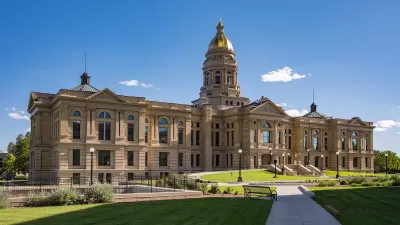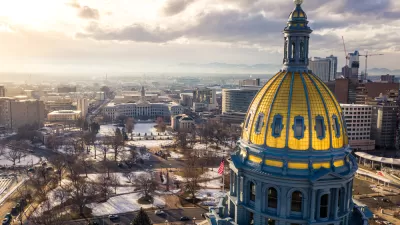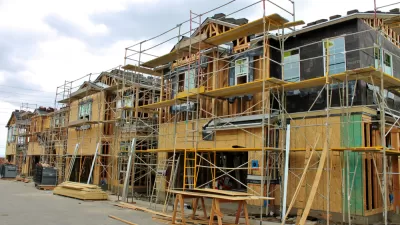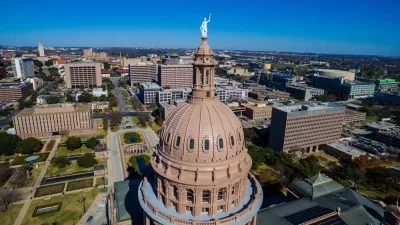The state task force will examine six bills aimed at limiting local opposition to new housing development.

The Wyoming state legislature’s Regulatory Reduction Task Force is considering a package of housing bills that could limit local control over zoning and building to promote more housing production, reports Angus M. Thuermer, Jr. for WyoFile.
According to Thuermer, “Formed by the Legislature in 2023, the task force was charged with examining “rules, regulations, statutes, and processes affecting the mining, agricultural, and construction industries.” Landowners, developers and some affordable housing advocates last year urged the task force to also focus on local authority over development permits, fees and zoning regulations that are now top agenda items.”
The proposed bills would, among other things, limit or eliminate development fees for housing, prohibit natural gas in new buildings, and bar cities from charging rental property registration fees.
Additionally, “Zoning protest petition-amendments would change the percentage of neighboring property owners required to protest a change to zoning, development restrictions or boundaries. Set at 20% today, it could be changed to an unspecified number that the task force would recommend.” Another bill would promote the leasing of government-owned land for housing purposes.
FULL STORY: State (Wyoming) considers limiting local authority over housing, zoning and development

Trump Administration Could Effectively End Housing Voucher Program
Federal officials are eyeing major cuts to the Section 8 program that helps millions of low-income households pay rent.

Planetizen Federal Action Tracker
A weekly monitor of how Trump’s orders and actions are impacting planners and planning in America.

Ken Jennings Launches Transit Web Series
The Jeopardy champ wants you to ride public transit.

Rebuilding Smarter: How LA County Is Guiding Fire-Ravaged Communities Toward Resilience
Los Angeles County is leading a coordinated effort to help fire-impacted communities rebuild with resilience by providing recovery resources, promoting fire-wise design, and aligning reconstruction with broader sustainability and climate goals.

When Borders Blur: Regional Collaboration in Action
As regional challenges outgrow city boundaries, “When Borders Blur” explores how cross-jurisdictional collaboration can drive smarter, more resilient urban planning, sharing real-world lessons from thriving partnerships across North America.

Philadelphia Is Expanding its Network of Roundabouts
Roundabouts are widely shown to decrease traffic speed, reduce congestion, and improve efficiency.
Urban Design for Planners 1: Software Tools
This six-course series explores essential urban design concepts using open source software and equips planners with the tools they need to participate fully in the urban design process.
Planning for Universal Design
Learn the tools for implementing Universal Design in planning regulations.
Ada County Highway District
Clanton & Associates, Inc.
Jessamine County Fiscal Court
Institute for Housing and Urban Development Studies (IHS)
City of Grandview
Harvard GSD Executive Education
Toledo-Lucas County Plan Commissions
Salt Lake City
NYU Wagner Graduate School of Public Service





























